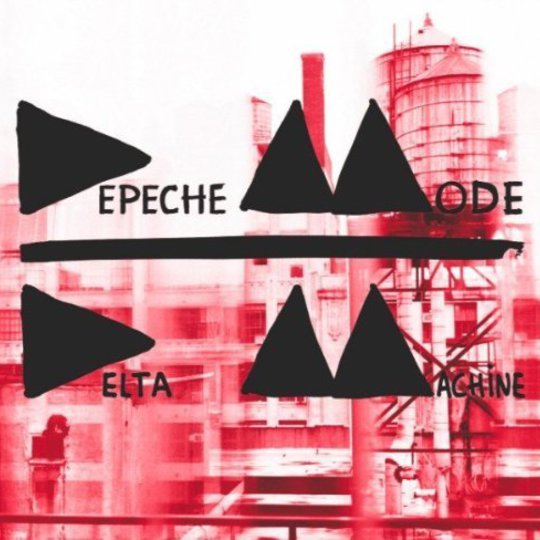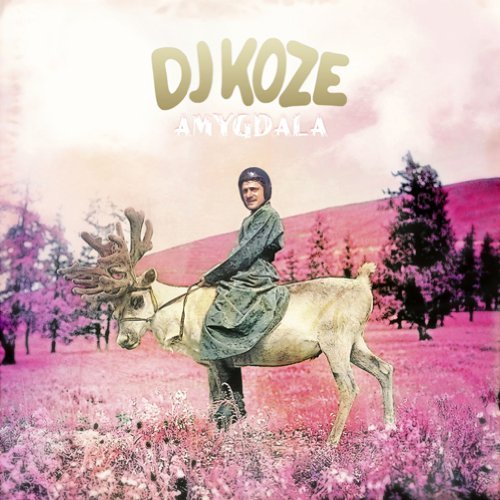Delta Machine is synth-pop goofs/electro-rock stadium legends Depeche Mode’s thirteenth studio album, yet their discography feels much bigger on account of the fact that each album they’ve released since 1997 has sound more and more like the last one. So much so that 2005’s Playing the Angel and 2009’s Sounds of the Universe felt more like precursors to the announcement of another world/stadium/arena tour than important albums in their own right.
Recent health issues aside it’s hard to believe songwriter Martin Gore when he claims “We've been saying since Black Celebration that we can't guarantee there'll be another record.” Sure, in the Nineties Depeche Mode were just one chronic Basildon doughnut away from extinction, but these days the arrival of a new Depeche Mode record feels like an inevitability and in direct contrast to Gore’s depiction of intra-band relations the perfect word to describe Depeche Mode’s output since 2001’s Exciter would have to be 'functional', that function being to please the Mode’s long-standing hardcore fanbase.
Unsurprisingly, Delta Machine is no latter day mould-breaker. It’s neither a deviation in style or in quality from its immediate predecessors, but a significant drop in quality from their career best, which they continue to emulate to no discernible gain. There are the portentous melodramas: ‘Heaven’ is a competently anguished ballad led by gloomily languid descending piano, with Gore’s backing harmonies effectively pressing the pain home on the chorus; the Gore-sung ‘The Child Inside’ is tuneless and dull where it thinks it is atmospherically minimalistic and he makes a good case for keeping himself confined to backing vocals only; ‘Alone’ is an ominous brooder than builds upon menacing beaten verses only to anti-climax into a weightless, hook-less chorus. Going into the red would be too much like subverting themselves it seems.
Depeche Mode’s biggest crime is that they're just a bit boring. They’re so enamoured with their own sonic aesthetic that they’re over-reliant on familiar synth textures and patterns to engender their own well worn notion of atmosphere, and often at the expense of melody leaving a blank space where there should be moody synth-pop songs. ‘My Little Universe’ is brave in its minimalism, but that only means that Martin Gore doesn’t give us a tune to shield us from his banal words. ‘Broken’ is a sleek little number, but so sleek and sneaky that its melodies bypass your memory entirely, whereas the bubbling synth bass arpeggios of ‘Secret to the End’ hold promise, but the song goes nowhere beyond the initially catchy melody.
It isn’t completely uninspired. The cliché that practice makes perfect doesn’t always hold true with regard to music, but having spent so long working away within their own little niche Depeche Mode are bound to be at least a little bit good at it. Album opener ‘Welcome to My World’ is a fantastic patchwork of buzzes, whirs, ticks and hums which are unexpectedly subsumed within the pompous staccato string section of the chorus. Bluesy guitar is the incongruous addition on ‘Angel’, which is curious for Dave Gahan’s impression of Nick Cave; on ‘Slow’ Gahan is seductive in a way Cave could never be; and on album closer ‘Goodbye’, where it is successfully married with bright synth-pop interludes and a delightfully cavernous bellow of a chorus. It would be tempting to include the squelchy up-tempo punchiness of ‘Soft Touch/Raw Nerve’ in this list, coming as such a refreshment in the wake of the album’s dreary midsection, but without being a great song in itself this only serves to demonstrate what a weak effort Delta Machine really is. Sadly, this is what we have come to expect from Depeche Mode, still going 'strong' after 30 years and far too comfortable in their own skin.
-
5Neil Ashman's Score






















